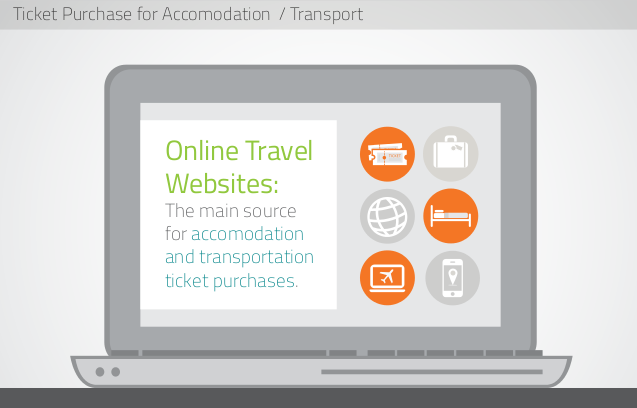With the new year approaching, professionals are shaking in anticipation of their new allocations for vacation days. As such, January is the perfect time to plan future getaways, and according to some recent reports, more online users refer to social media for help.
Brafton has reported that Pinterest users regularly visit travel sites, and marketers who develop related pinboards might promote travel packages through the network. New research from Text 100 shows that 87 percent of travelers under the age of 34 use Facebook to choose their vacation destinations. More, half of all survey respondents also use Pinterest, Twitter and other popular networks for inspiration.
“A consumer is not necessarily making travel decisions based on what a corporation, airline or destination says,” said Text 100 Global CEO Aedhmar Hynes. “There has to be consistency across all touch points and experiences to ensure that the consumer ultimately has a positive experience and becomes a brand advocate.”
Hynes goes on to say that travelers who have positive experiences while searching for social media content that inspires vacation ideas are companies’ greatest ambassadors. The Text 100 report also notes that 43 percent of respondents depend on travel blogs to educate their vacation decisions and trip activities. NM Incite shows that consumers spend 17 percent of their PC time on Facebook. Brands that post quality blog content to their social accounts are able to target travelers looking for information on Facebook.
 With people turning to social media for travel advice, marketers must provide adequate amounts of custom content that educates readers on the best places to go this year and the activities offered at those unique locations. A content marketing strategy must deliver timely articles, from news to how-tos to blog posts, that offer social users a variety of facts and figures they can reference throughout the planning of trips and the enjoying of activities while on their vacations.
With people turning to social media for travel advice, marketers must provide adequate amounts of custom content that educates readers on the best places to go this year and the activities offered at those unique locations. A content marketing strategy must deliver timely articles, from news to how-tos to blog posts, that offer social users a variety of facts and figures they can reference throughout the planning of trips and the enjoying of activities while on their vacations.
The Text 100 report notes that online travel websites are the top resource for consumers looking to book accommodations, schedule transportation needs and purchase tickets. There are a lot of travel companies vying for the same jetsetter audience, so in order for marketers to make their brands stick out, website content that is helpful and relevant must be crafted and posted on the internet to speak with consumers throughout their planning processes.




